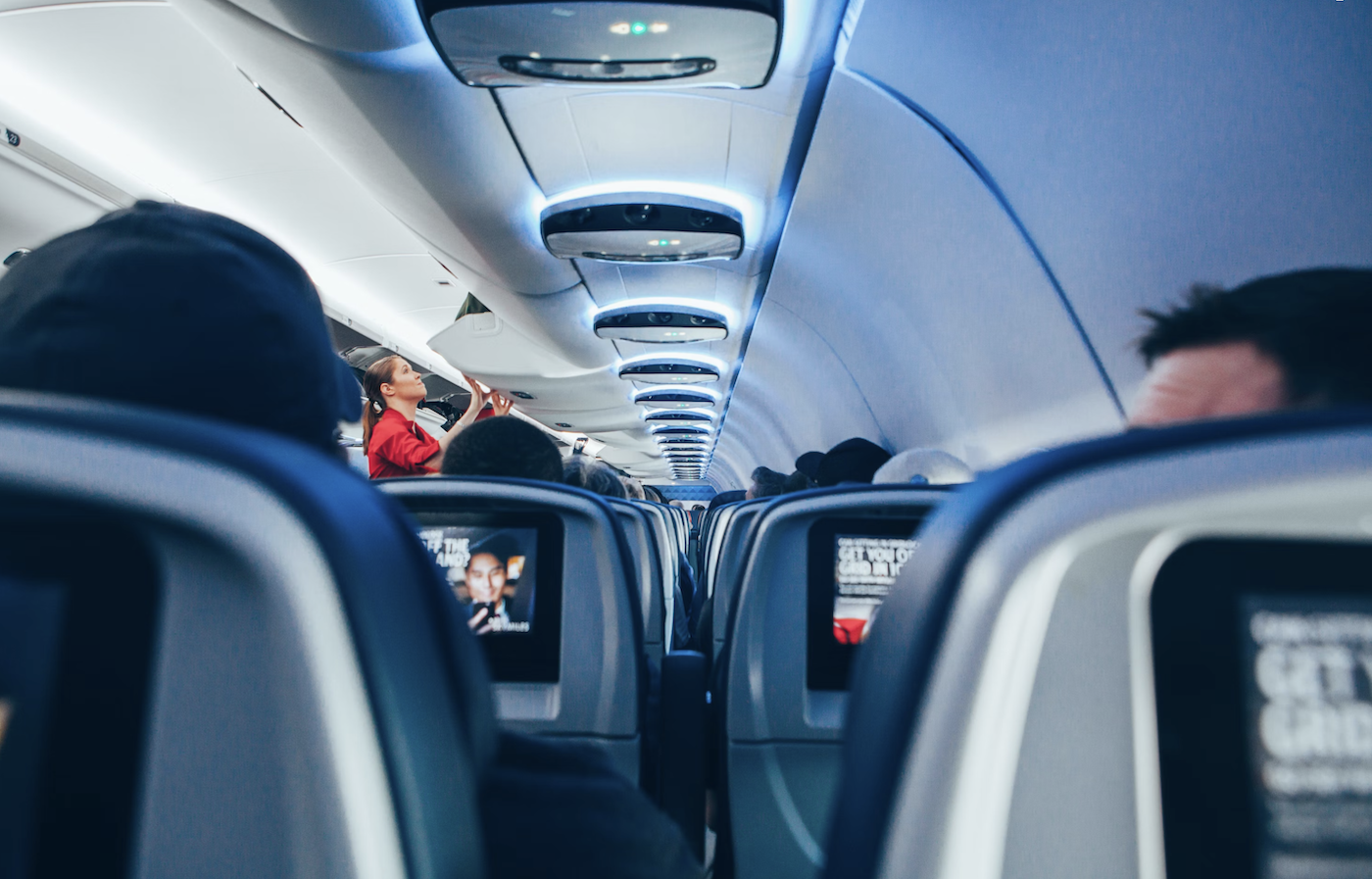The thought of a medical emergency while flying might send shivers down your spine. And this is not surprising: you are miles above the ground on an airplane, with no immediate access to a hospital or a doctor. This scenario underscores the significance of knowing how to handle medical emergencies during a flight.
This comprehensive guide aims to impart essential knowledge on this topic so that you’re better prepared to handle any health-related incident onboard with composure and calmness.

Common In-Flight Medical Emergencies
Health-related incidents during flights can encompass a broad spectrum, from mild annoyances to critical emergencies. While we can’t anticipate all possible health complications, there are some conditions that are more commonly seen during air travel.
- Experiencing fainting spells or feeling lightheaded is quite typical, often caused by dehydration, hypotension, or the effect of altitude changes;
- Respiratory complications, whether triggered by a pre-existing condition like asthma or a reaction to the cabin air, also occur regularly;
- Cardiovascular incidents, though less common, are particularly serious and demand immediate intervention;
- Issues related to digestion, caused by either the in-flight meal or motion sickness, and bouts of anxiety or panic, particularly amongst those with aviophobia, are other possible situations.
Being aware of these common flight medical emergencies is a key part of being prepared. It can help you identify when a fellow passenger might be in trouble, enabling you to react promptly and effectively.
What to Do If You or Someone Else Requires Medical Attention
Knowing how to handle medical emergencies onboard can greatly influence the outcome, particularly when professional medical help is not readily available. Here are a few key actions to consider:
Keep your cool. It’s essential to remain composed because anxiety can cloud your judgment and prevent you from taking necessary actions.
Notify the flight attendants. The airline staff should be the first ones to know about the situation. They know to handle various emergencies, including health-related ones. They also have access to the necessary medical supplies onboard.
Provide comprehensive information. If possible, provide the staff with a complete picture of the situation. This would include the symptoms, any known medical history, and details about any medication the person might be on.
Adhere to instructions. The flight attendants, potentially with the help of a medical professional onboard or via remote medical assistance, will lead the way in managing the situation. It’s crucial to follow their directions precisely.
Help out if you can. If you have medical expertise and are comfortable offering help, you should definitely step forward.

How Flight Crews are Trained to Handle Medical Emergencies
Airline crew members undergo rigorous training to deal with an array of in-flight emergencies, including health-related ones. They learn basic first aid, CPR, the correct usage of the onboard emergency medical kit, and the procedures to follow in various emergency situations. Their training is geared towards stabilizing the patient until the aircraft can land and professional medical help can be obtained.
In the case of grave medical emergencies, most airlines have procedures in place to get advice from medical support services based on the ground. This service can offer vital direction to the crew and any medical professionals on board who may be assisting.
Moreover, according to European law, passengers who suffered a significant medical emergency leading to a delayed or cancelled flight have the right to get compensation. For example, if such an event occurs during an Iberia flight, passengers might be eligible for Iberia claim compensation. It’s vital to be aware of your rights and to act accordingly if needed.
In conclusion
Dealing with a medical emergency while onboard a flight can be challenging. However, by understanding the common in-flight medical emergencies, and knowing the appropriate response, you can contribute positively towards managing the situation effectively. Equipped with this knowledge, you can be a part of the solution, not an additional problem.
Moreover, it’s comforting to know that flight crews are trained to handle such incidents, and that professional medical advice can be sought in real time during serious emergencies. As a passenger, your understanding of these procedures and your cooperation are key to ensuring the best possible outcome.
Have you experienced a medical emergency during a flight? How has the crew managed it? Let us discuss your thoughts, experiences, or any other insights you may have on this topic. By sharing and learning, we can all contribute to making air travel safer and better prepared for emergencies.
Travelbinger is proud to be a publisher with Google News and Apple News.
More Stories:
Expert review: Nouhaus Ergo3D Ergonomic Office Chair for remote working
Cozy Earth sheets review: are they really the world’s softest sheets?
6 best airlines to fly economy class
All Zodiac Signs: Your 2023 Year Ahead Forecast
Some of the links in this post are affiliate links. If you click on the link and purchase the item, I will receive an affiliate commission. Please do! I’m a one-man team for this website, so any help is sincerely appreciated.
Travelbinger is now on YouTube! Subscribe here for exclusive travel tips and advice from founder Jimmy Im. Follow us on Twitter, Facebook and Instagram.
Jimmy Im has traveled to 113 countries, stayed in over 600 hotels and has flown a million airmiles. He lives in New York City.


